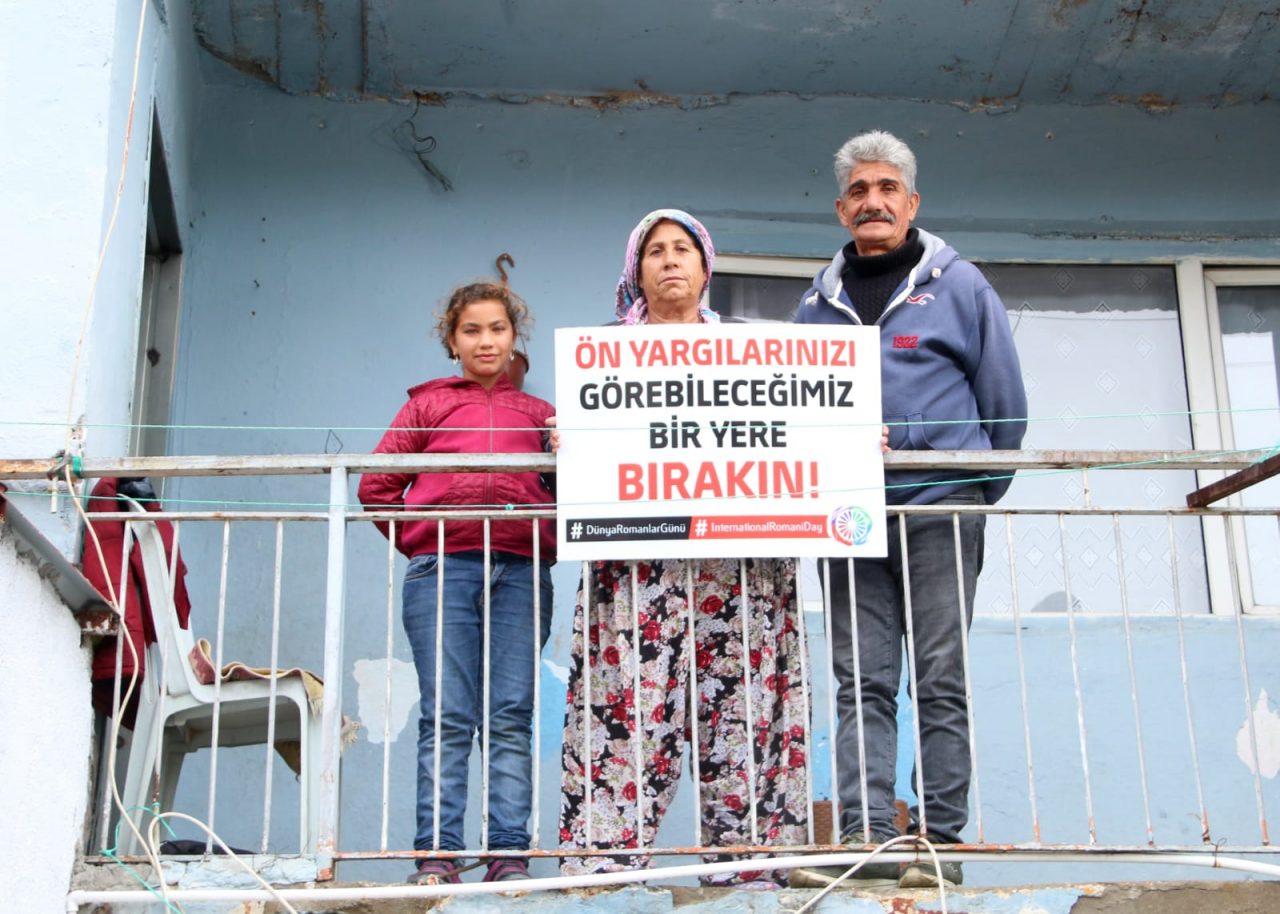Joint Statement by Romani Civil Society Organizations: “Romanis Struggle With Hunger More Than The Virus”
21 Mayıs 2020

48 Romani Civil Society Organizations including Zero Discrimination Association, Anadolu Abdalları Joint Platform, the Aegean Region Federation of Romani Associations and Dom Communities Association made a joint statement from all over Turkey because of the April 8th, World Romani Day. The group who demanded urgent action for Romani citizens once again said: “End discrimination now!”.
The statement touches upon the facts that although Romanis are an inseparable part of the society in Turkey, this situation is still not accepted as a fact, that Romanis cannot access the most basic rights in education, employment, housing, health and social services, and that they face severe discrimination in these areas.
It is stated that Romanis who continue to be discriminated against during the coronavirus process are now struggling with the epidemic as well as poverty and hunger.
What Are The Urgent Demands?
- Providing regular cash benefits to these poor and vulnerable groups during the COVID-19 struggle within the scope of social benefits,
- Providing food / hot meal support to prevent poor people from having problems in food supply,
- Distribution of hygiene kits containing ingredients such as detergent, soap, cologne, and tissue papers,
- Postponing the payment of water, electricity, communication, natural gas bills until the epidemic ends and spreading the payments over time,
- Re-providing water, electricity, natural gas and communication services to those whose water, electricity, communication and natural gas were cut off,
- Providing travelling and mobile health services accessible to poor and vulnerable groups,
- Reserving spaces for homeless who are suspected of COVID-19 where they can be isolated, where they can eat regular and nutritious meals and that have health personnel support,
- Removal of contribution shares of drugs during the fight against COVID-19,
- Disinfection at regular intervals in these neighborhoods with high population density,
- Informing them about not gathering at the front doors which is a part of social life and solidarity in neighborhoods,
- Spreading of public service ads on protection against COVID-19 and about the prevention of epidemic regularly among poor and vulnerable environments through NGOs and community leaders,
- Planning and implementation of compensatory trainings for Romani children who are suspended from education after the COVID-19 outbreak,
- Considering the families who have lost their jobs within the scope of the Community Benefit Program until they establish new businesses,
- Illiterate Romani people to get literacy courses immediately.
You can find the full statement here: buradan

Bizi Takip Edin